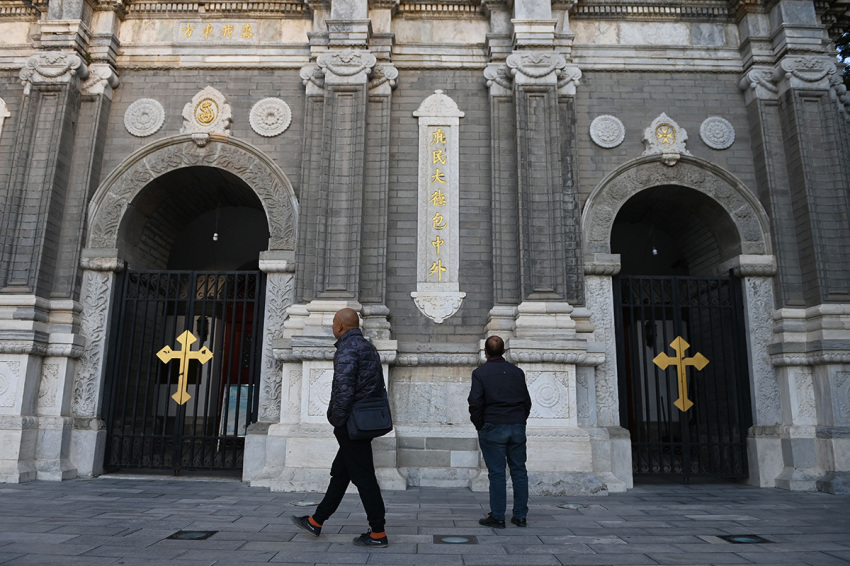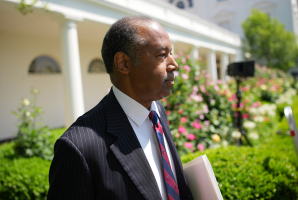Pray.com removed from Apple App Store in China, restricting access to content

Pray.com, a leading digital platform for Christian content, says it has been removed from the Apple App Store in mainland China, reflecting the Chinese government's strict internet publishing policies.
The removal restricts access to significant events like the National Day of Prayer livestream, previously featuring prominent figures such as President Joe Biden, Chris Tomlin and Franklin Graham, the platform announced in a statement.
Pray.com's mission since its 2016 inception has been to enhance faith and community engagement worldwide. With over 16 million users, it offers a range of spiritual resources, including daily prayers and Bible stories.
The decision marks a shift in China's approach to the prayer app, which had operated under more lenient conditions that permitted the app to minister to people in China while others had been shut down.
"Since starting Pray.com we've grown accustomed to positive relations with China," co-founder Michael Lynn said. "President Xi has allowed for the printing of nearly 150 million Bibles per year, and President Trump ensured that Bibles were exempt from Chinese tariffs."
In response, Pray.com is seeking alternative methods to reach its Chinese audience, with CEO Steve Gatena inviting President Xi to the National Day of Prayer event in Washington this May.
Apple told The Christian Post that it's obligated to follow the laws of countries in which it operates, including ones it disagrees with. In China, the law requires apps that primarily function to provide or facilitate access to religious content to acquire permits from regulators to be included in app stores.
Except for China, the Pray.com app can still be downloaded on all other storefronts where it was previously available.
In 2022, China enacted regulations that mandate an internet religious information service license for any religious group that wants to disseminate religious content on the internet. Opponents of the measure, including the rights group Bitter Winter, claim that only “legally established” organizations can acquire those licenses, essentially meaning only groups that are part of the five authorized religions in China can use the internet to distribute religious content.
According to the English translation of the regulation, those engaged in "internet religious information services" must "practice the core socialist values, adhere to the principle of independent self-management of religions in China, adhere to the direction of sinicization of religions in China, and actively guide religions to adapt to socialist society."
Pray.com co-founder Matthew Potter highlighted ongoing efforts to navigate these barriers. He indicated that he would speak with former President Donald Trump, the frontrunner for the 2024 Republican nomination, on Thursday night.
"We are committed to overcoming these barriers to ensure that our global community remains connected and supported, especially during significant spiritual observances such as the National Day of Prayer," Potter said.
The company expresses solidarity with its Chinese members, striving to comply with regulations while upholding its foundational goals.
This development reflects China's continual crackdown on religious content, including the removal of Bible apps and Christian WeChat accounts, as part of broader restrictions on religious practices.
Father Francis Liu from the Chinese Christian Fellowship of Righteousness tweeted in 2021 that some Christian WeChat accounts, including "Gospel League" and "Life Quarterly," were no longer available online.
Bible apps had also been removed from the App Store, and Bibles in hard copy were no longer available for sale online, as U.S.-based persecution watchdog International Christian Concern reported at the time. Bible apps could only be downloaded with the use of a virtual private network.
Another sign of the crackdown was that bookstores owned by the state-sanctioned Three-Self churches had increasingly been selling books that promoted President Xi's thoughts and communist ideology.
The five state-sanctioned religious groups in China are the Buddhist Association of China, the Chinese Taoist Association, the Islamic Association of China, the Protestant Three-Self Patriotic Movement and the Chinese Patriotic Catholic Association. Even the organizations within the five authorized religions are subject to surveillance and limitations.
In October 2020, internet censorship targeting Christians in China became so severe that even official government-sanctioned Christian groups started using the Chinese Pinyin initials "JD" to replace Chinese characters for "Christ," China Aid reported at the time.
In 2018, the Chinese government banned the sale of Bibles at online bookstores nationwide to comply with a "white paper" that dictated compliance with the "core values of socialism."
Australia's ABC News reported at the time that copies of the Gospels had been removed from online retailers following the release of a regime document titled "China's Policies and Practices on Protecting Freedom of Religious Belief."
The white paper declared that Chinese faith communities "should adhere to the direction of localizing the religion, practice the core values of socialism, develop and expand the fine Chinese tradition and actively explore the religious thought which accords with China's national circumstances."



























